 TheLastManinRussia OLIVERBULLOUGH THELASTMAN INRUSSIA TheStruggletoSaveaDyingNation BASICBOOKS AMEMBEROFPERSEUSBOOKSGROUP NEWYORK Copyright2013byOliver Bullough PublishedbyBasicBooks, AMemberofthePerseusBooks Group Publishedin2013intheUnited KingdombyAllenLane, animprintofPenguinBooks Allrightsreserved.Nopartofthis bookmaybereproducedinany mannerwhatsoeverwithoutwritten permissionexceptinthecaseofbrief quotationsembodiedincritical articlesandreviews.For information,addressBasicBooks, 250West57thStreet,15thFloor, NewYork,NY10107. BookspublishedbyBasicBooksare availableatspecialdiscountsfor bulkpurchasesintheUnitedStates bycorporations,institutions,and otherorganizations.Formore information,pleasecontactthe SpecialMarketsDepartmentatthe PerseusBooksGroup,2300 ChestnutStreet,Suite200, Philadelphia,PA19103,orcall (800)810-4145,ext.5000,ore-mail ACIPcatalogrecordforthisbookis availablefromtheLibraryof Congress. E-bookISBN:978-0-465-07497-6 Contents Misha, a journalist friend, rang me around noon on 1 January 2004. I assumedhewascallingtowishmea happynewyear.ForRussians,New Year is a more important holiday than it is in the West. Presents are exchanged and toasts drunk for success in the year ahead. It is normal to call or text friends if only tolaughwiththem.
TheLastManinRussia OLIVERBULLOUGH THELASTMAN INRUSSIA TheStruggletoSaveaDyingNation BASICBOOKS AMEMBEROFPERSEUSBOOKSGROUP NEWYORK Copyright2013byOliver Bullough PublishedbyBasicBooks, AMemberofthePerseusBooks Group Publishedin2013intheUnited KingdombyAllenLane, animprintofPenguinBooks Allrightsreserved.Nopartofthis bookmaybereproducedinany mannerwhatsoeverwithoutwritten permissionexceptinthecaseofbrief quotationsembodiedincritical articlesandreviews.For information,addressBasicBooks, 250West57thStreet,15thFloor, NewYork,NY10107. BookspublishedbyBasicBooksare availableatspecialdiscountsfor bulkpurchasesintheUnitedStates bycorporations,institutions,and otherorganizations.Formore information,pleasecontactthe SpecialMarketsDepartmentatthe PerseusBooksGroup,2300 ChestnutStreet,Suite200, Philadelphia,PA19103,orcall (800)810-4145,ext.5000,ore-mail ACIPcatalogrecordforthisbookis availablefromtheLibraryof Congress. E-bookISBN:978-0-465-07497-6 Contents Misha, a journalist friend, rang me around noon on 1 January 2004. I assumedhewascallingtowishmea happynewyear.ForRussians,New Year is a more important holiday than it is in the West. Presents are exchanged and toasts drunk for success in the year ahead. It is normal to call or text friends if only tolaughwiththem.
Misha, however, had something different in mind. He had, I later discovered from his girlfriend, been drinking with breaks only to pass out solidly for two days already, and he went on to drink for two more. Oliver, listen, I need your help. What is the meaning of the word zombiehedgehog? He was speaking Russian, heavily slurred, but still intelligible. He said the last two words in English, however, and clearly wanted me to translate them. I was baffled, and asked what he meant.
There was a pause at the other end, then he swore at something or someone in the room with him and hung up. I waited for him to call back,butheneverdid.WhenInext sawhim,aweekortwolater,hehad no recollection of the call and I never did find out why he had asked. Misha had an alcohol problem. OnatriptoChechnyaafewmonths later,wegotupataroundfive-thirty inthemorningtobesuretoarrivein Groznywithplentyoftimetowork. I had arranged that the hotel would make breakfast for us early. I was drinkingteaandwaitingformyeggs when Misha walked into the dining room.
The waitress asked him what he would like to drink, and he lookedaroundatme. Doyouwanttodrink? I shook my head. I needed it cleartowork. Give me a bottle of brandy, he told the waitress. She brought it, withasingleglass,onthesametray ashisbreakfast.Hedrankit,shotby shot, while he ate his fried eggs, sausage and bread. He bought another bottle as we were leaving.
BythetimewereachedtheChechen border, he had drunk that too a litre of brandy before nine in the morning and insisted we stop for vodka. Thisisnotoneofthosestoriesof journalistic excess that end with the drunkarddoinghisjobdespitebeing barely coherent. (There is an apocryphalFleetStreetphotographer who is said to have fallen off his stepladderandstilltohaveshotthree perfect frames before hitting the ground.) No, Misha was by turns abusive and sentimental as I tried to get some kind of work out of the day. By evening, he was comatose and a few of us cobbled together some material to send to Moscow underhisname. Although this was an extreme episode, it was not in itself unusual. Opokhmelitsya is a verb meaning to have a drink in the morning to remove a hangover (it is a crucial element of a zapoi, but exists in other contexts too). Peregar is the smellofalcoholfromamouthinthe morning. Peregar is the smellofalcoholfromamouthinthe morning.
This is a habit not only of the destitute. Misha was a successful, talented and well-paid journalist. He and his colleagues drank in ways I had never seen before. And, althoughRussianmendodrinkmore than women, this is not by any means a uniquely male problem. Anyone travelling to work on the Moscow metro in the morning will see well-dressed, made-up young womendrinkingbeeroutofcans.In Russia,buyingalcoholiseasierthan buying bread. Kiosks have whole walls of vodka, which they sell for aslittleas3forahalf-litre.
While hiking in the wilds near Siberias Lake Baikal, my brother and I met a small group of fellow outdoor enthusiasts and we decided tocamptogetherforthenight.They werethefirstpeoplewehadseenfor a couple of days, and we brought out a bottle of vodka we had been savingforjustsuchanoccasion.Our offer was met not withalacrity, however,butwithscorn.Oneofthe group,aprofessorfromauniversity in Novosibirsk, explained, as if talking to a child, how real hikers behave. Real hikers watch every gram they carry, he said.They have no space in their rucksacks for such indulgences as vodka. I was wondering whether perhaps Tom andIshouldfindsomewhereelseto camp,whenhereachedbehindhim. Thisiswhatyouneed,hesaid, drawing a brown bottle out of his rucksack. It was what the Russians c a ll spirt, pure alcohol. I saw his point.Ifyouwanttogetdrunk,why waste space carrying vodka with its 62.5 per cent of water when you can carry the same volume of alcohol and get the water from a stream? The evening of the day when Misha overdid it in Chechnya, we werecoopeduponamilitarybase.It was then illegal for foreign journalists to travel in Chechnya without an escort (this was both for ourprotectionandtostopusgetting anyworkdone),andwehadtobein the barracks long before the sun set and the violence started.
Misha was asleep but I was not, so another journalist and I passed the hours before bed chatting to Ilya Shabalkin, a colonel who acted as spokesman for the federal forces, and a couple of other officers. Shabalkin brought out a two-litre bottle of Dzhelka, a cheap but not undrinkablebrand.Ihadcontributed a small bottle of Green Stamp, a brandthenfashionableinMoscow. Iquicklyfellbehind.Howmuch you can drink is a sign of your masculinity, and Russians have a multitude of sayings to ridicule anyone who tries to stop early or to skip a round (If you wont drink with us today, youll betray your homeland tomorrow is one example). Fortunately, foreigners tend to be exempt, it being understood that we are already inferior. I could only watch as these four men three of them holding high rank in the Russian armed forces, and the other a successful reporterdrainedthebottleslikean ebbingtide.BythetimeIcreptaway to bed, there were three empty bottles on the table, and they had startedonafourth.Thatismorethan six litres of vodka among five people, one of whom was barely drinking, on a weekday. And they hadnotyetfinished.
When Russians drink vodka, they do not sip it, or mix it with juice. They drink shot after shot, eachonefollowedbyaquickbiteof gherkin or bread. Russian vodka normally tastes chemical, like an unsuccessful science experiment. Unlike with whisky, wine or beer, there is no effort to make the drink itself enjoyable. It is a means to an end, a vehicle to get you drunk. I will drink vodka if I have to, but rarely out of choice.
When I can, I drink beer instead, which means I can usually remember the nights eventsthenextmorning. Russians have always had a reputation for drinking. One of the first mentions of them in the historical record features their king rejecting Islam because of its prohibition on alcohol. The average Russian drinks three times the volume of spirits drunk by a German, and four times that of a Portuguese, and thats only the officialfigures.Noonehasanyidea how much self-distilled moonshine is drunk, but it must be a lot, for every traveller in Russia has a story aboutit. Iwasonceonan overnight train fromStPetersburgtoMoscow.Ihad bought the cheapest ticket, and was one of eight passengers sitting bolt upright in a dingy compartment as the train crawled through a dark forest. We had all brought beer to drink, but the bottles were finished now,andlaylitteredaroundourfeet.
Next page

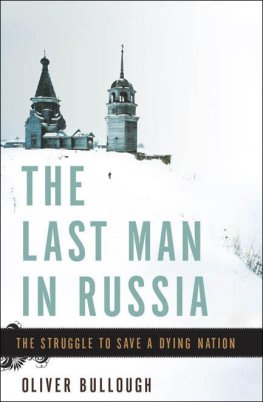
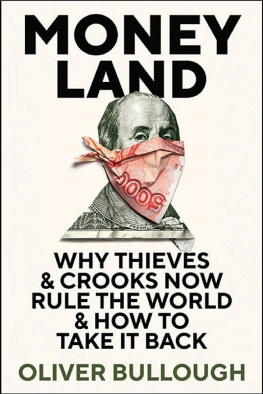
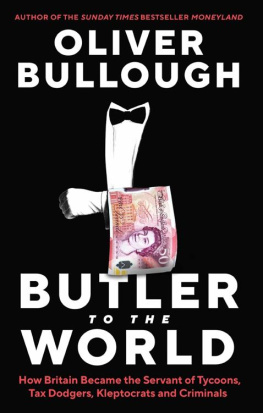
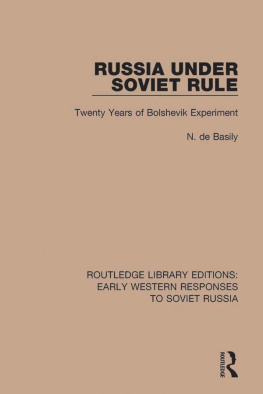
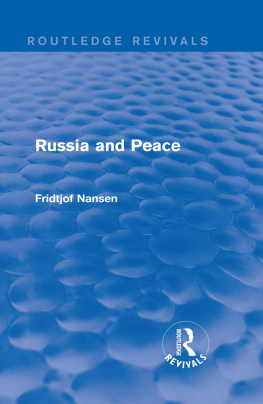



 TheLastManinRussia OLIVERBULLOUGH THELASTMAN INRUSSIA TheStruggletoSaveaDyingNation BASICBOOKS AMEMBEROFPERSEUSBOOKSGROUP NEWYORK Copyright2013byOliver Bullough PublishedbyBasicBooks, AMemberofthePerseusBooks Group Publishedin2013intheUnited KingdombyAllenLane, animprintofPenguinBooks Allrightsreserved.Nopartofthis bookmaybereproducedinany mannerwhatsoeverwithoutwritten permissionexceptinthecaseofbrief quotationsembodiedincritical articlesandreviews.For information,addressBasicBooks, 250West57thStreet,15thFloor, NewYork,NY10107. BookspublishedbyBasicBooksare availableatspecialdiscountsfor bulkpurchasesintheUnitedStates bycorporations,institutions,and otherorganizations.Formore information,pleasecontactthe SpecialMarketsDepartmentatthe PerseusBooksGroup,2300 ChestnutStreet,Suite200, Philadelphia,PA19103,orcall (800)810-4145,ext.5000,ore-mail ACIPcatalogrecordforthisbookis availablefromtheLibraryof Congress. E-bookISBN:978-0-465-07497-6 Contents Misha, a journalist friend, rang me around noon on 1 January 2004. I assumedhewascallingtowishmea happynewyear.ForRussians,New Year is a more important holiday than it is in the West. Presents are exchanged and toasts drunk for success in the year ahead. It is normal to call or text friends if only tolaughwiththem.
TheLastManinRussia OLIVERBULLOUGH THELASTMAN INRUSSIA TheStruggletoSaveaDyingNation BASICBOOKS AMEMBEROFPERSEUSBOOKSGROUP NEWYORK Copyright2013byOliver Bullough PublishedbyBasicBooks, AMemberofthePerseusBooks Group Publishedin2013intheUnited KingdombyAllenLane, animprintofPenguinBooks Allrightsreserved.Nopartofthis bookmaybereproducedinany mannerwhatsoeverwithoutwritten permissionexceptinthecaseofbrief quotationsembodiedincritical articlesandreviews.For information,addressBasicBooks, 250West57thStreet,15thFloor, NewYork,NY10107. BookspublishedbyBasicBooksare availableatspecialdiscountsfor bulkpurchasesintheUnitedStates bycorporations,institutions,and otherorganizations.Formore information,pleasecontactthe SpecialMarketsDepartmentatthe PerseusBooksGroup,2300 ChestnutStreet,Suite200, Philadelphia,PA19103,orcall (800)810-4145,ext.5000,ore-mail ACIPcatalogrecordforthisbookis availablefromtheLibraryof Congress. E-bookISBN:978-0-465-07497-6 Contents Misha, a journalist friend, rang me around noon on 1 January 2004. I assumedhewascallingtowishmea happynewyear.ForRussians,New Year is a more important holiday than it is in the West. Presents are exchanged and toasts drunk for success in the year ahead. It is normal to call or text friends if only tolaughwiththem.